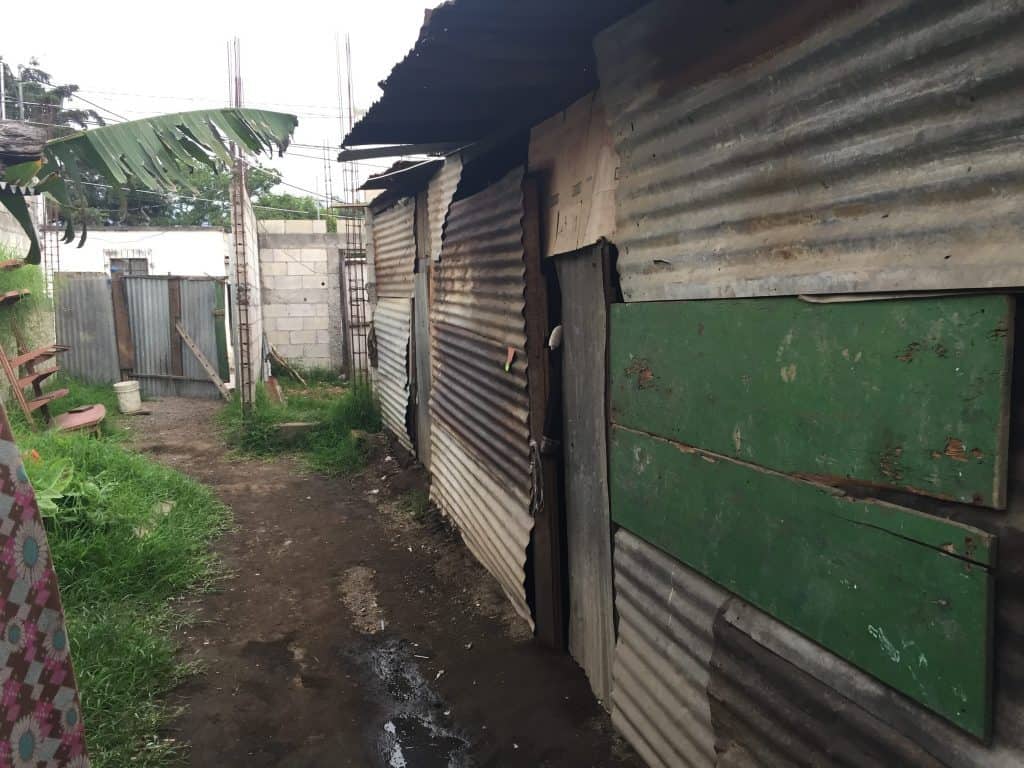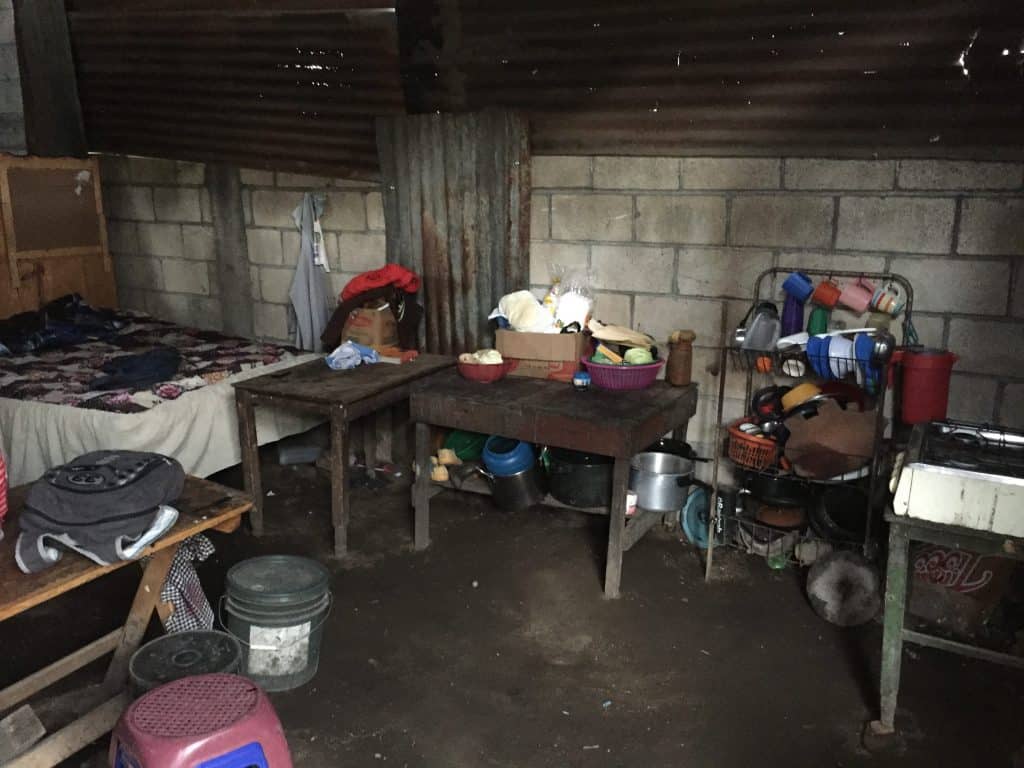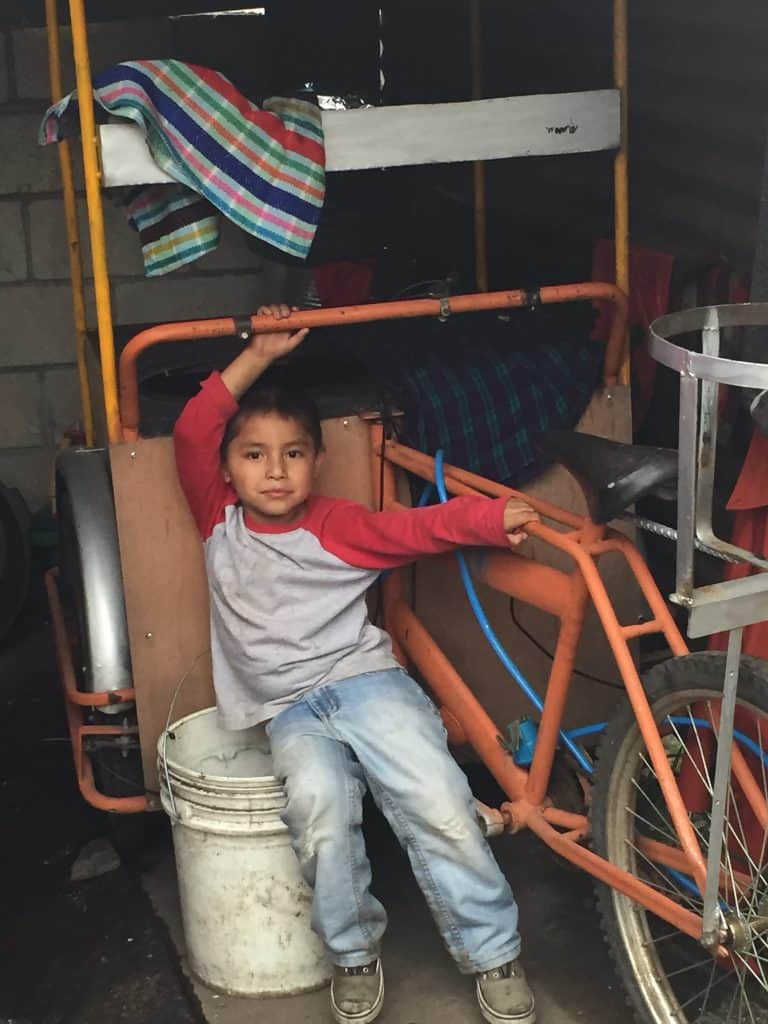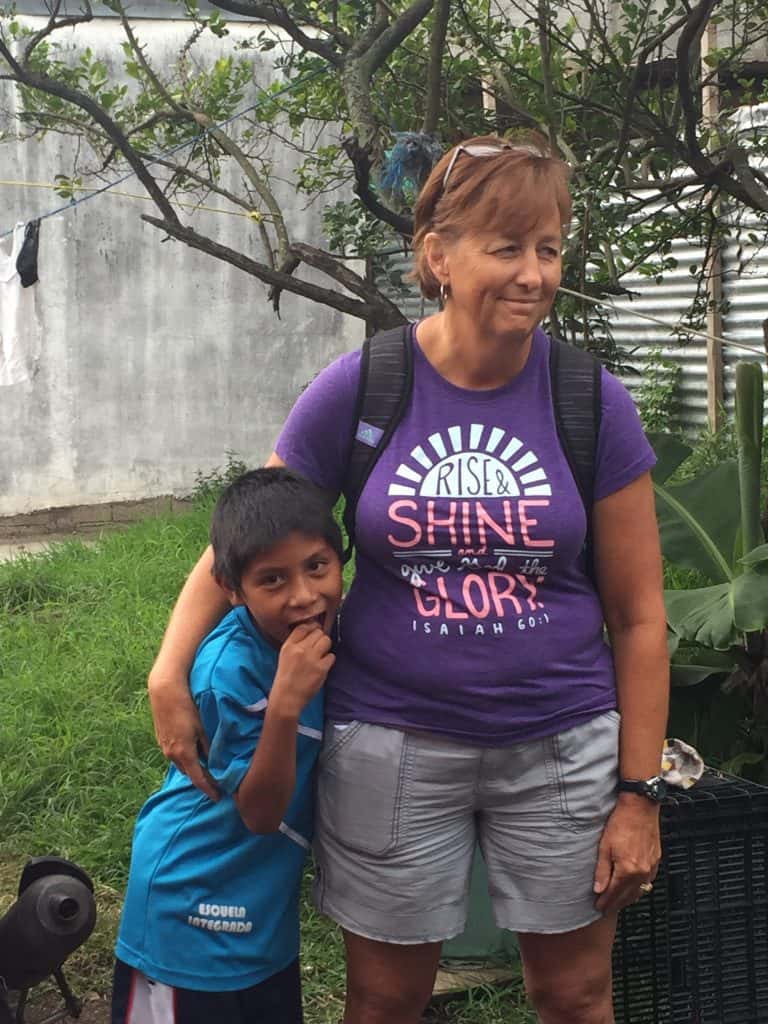Encountering the trap of poverty in Guatemala
“Woman in large parts of the civilized world has been forced back by war, by poverty, by collapse, by the sheer struggle to survive, into a smaller circle of immediate time and space, immediate family life, immediate problems of existence” — Anne Morrow Lindbergh
Luis is nine years old. He is in third grade at Escuela Integrada. He and his fifteen-year-old sister Pamela take two chicken buses each way to get from their home in Ciudad Vieja to the school in Jocotenango. They change buses near the grand market in Antigua, at a transportation center of sorts: a centrally located dirt lot where all of the multi-colored chicken busses park haphazardly to load and unload passengers traveling to and from the pueblos.

One side of the house is made solely of corrugated metal. The gate, kept closed by a two-by-four serves as the family’s front door.
We visited Luis, Pamela and their four-year-old brother Manuel at their home last week. They have six other brothers and sisters who sometimes live at home, but no longer rely on the support of their mother. Many of the kids have different fathers, most of whom abandoned them. It is rumored that their mother was at one time a prostitute.
When we arrived at the home, Pamela opened the corrugated steel gate by moving the two-by-four from behind. The rusted piece of metal serves as the only door to the small piece of land they rent, their home a makeshift structure of brick, corrugated steel and fabric. They don’t have a floor and there are holes in the roof. When it rains, the dirt quickly turns to mud and many small ravines emerge. Chickens and pigeons run through the house, and the only water comes from an outdoor sink.

One of the two rooms in the home where Manuel, Luis and Pamela live.
A blanket divided the space into two rooms. The front room had one bed, old paint buckets turned upside down to use as chairs and a variety of plastic dishware stashed in the corner. Clothes hung from electrical wires used to power a television in the other room. Why the house has a television is a puzzle of third world Latin America. A luxury? Perhaps a necessity to disconnect from their present reality.
We talked to Luis’ mom for quite some time, while Pamela and Manuel watched our clean, white faces with hero-like aspiration. The kids depend on the support of foreigners to survive. Luis’ mother explained how she uses the bicycle cart provided by their local church, to ride the seven miles into Antigua and sell hot food a couple times per week. The bicycle cart requires propane to heat the food and has space for a fry pan, but they don’t have the money for that yet. Some days she carries food on her head and Manuel on her back, traveling as far as her feet will take her to try to make a living.

Manuel leans against the bicycle cart his mother uses to sell hot food. He rides on his mother’s back when she goes into the city.
She told us about the cost of the land and how they may soon have to move to another location further up the hill, but that the people up the hill can’t be trusted. Her husband can’t work, she said, because of a disability. She didn’t say what kind of disability, but that he also struggled with alcoholism in the past.
Last year, she said, Luis was sexually abused by some men in their town, and shortly before that, he had been hit by a car. Luis, all the while, was nowhere to be seen. Krista, Luis’ sponsor from the U.S. asked where he was. His mother replied, “the internet cafe up the road,” and returned to stories of life in Ciudad Vieja.
A few minutes later, Krista inquired a second time about Luis’ whereabouts and asked if he could come back. Pamela went to find him. When Pamela returned, she handed her mother a bag of stale bread items. Her mother, mid-sentence, reached in and broke off a piece of a dried bagel. Crumbs fell down her face and across her multicolored blouse as she continued talking.
A few moments Luis came bounding through the door and went straight to Krista, who hugged him and held him a little bit tighter.

Luis and Krista, his sponsor in the U.S.
We asked to pray with the family. Luis’ mother called to her husband, who had been there the whole time, watching TV in the other room. He walked out with bloodshot eyes, wearing a torn white tank top and red shorts, to join the prayer circle. We prayed for work for the family, for health for the kids and for God to continually watch over them.
With that, we said our goodbyes, hugged each member of the family and loaded the microbus to return to Antigua. We left behind a bag of food, packed by the mission team, and a big piece of our hearts.
It is easy to jump to conclusions, to make suggestions about how the family should or shouldn’t raise their children. We struggled with why they spent money on a television, why they let their kids run off to internet cafes and other unknown destinations, and why both parents don’t work. Poverty in Guatemala traps men, women and children, both in terms of physical commodities and mental states. They have little choice but to put their energies toward “the sheer struggle to survive… immediate problems of existence” — food, clothing, shelter. Everything else comes second, including child rearing, financial literacy and education.
Escuela Integrada doesn’t attempt to solve every problem faced by a poor Guatemalan family, but they do a heck of a job providing a clean, safe and welcoming space for students like Luis and Pamela to learn. At school, the kids receive two meals a day, an education and a dream of a different future. Each student has a sponsor in the U.S. who provides funds for school supplies and food, and who, more importantly, gives the children a prayer partner and someone who believes they can achieve great things.
Luis and Pamela have a tough road ahead, but they can achieve great things. I invite you to join me in praying for them — or lifting them up to the universe if that’s more your flavor. Support comes in many forms, and they need all the support we can give them.
*Note: This post originally appeared on the author’s page on Medium.com.

